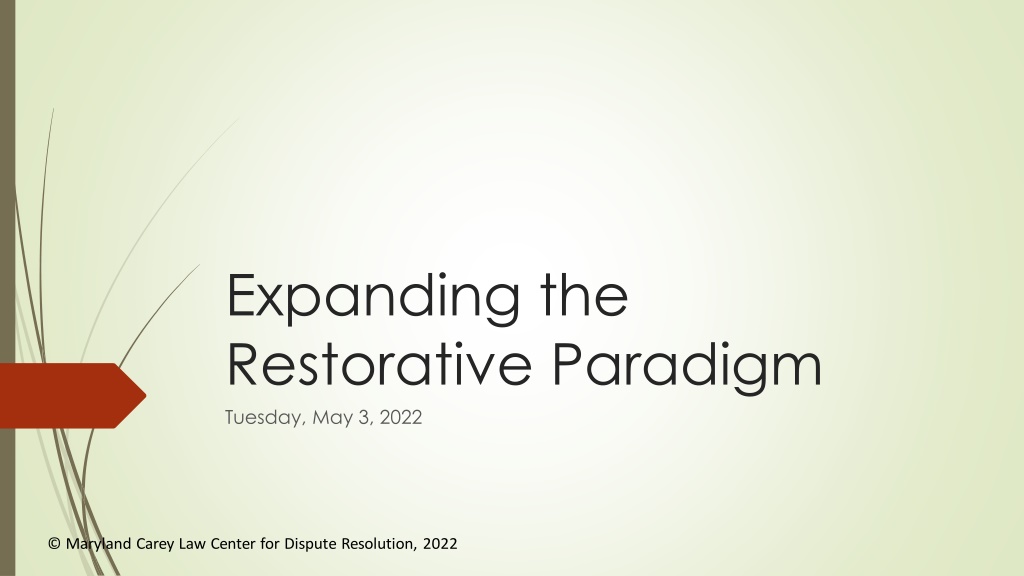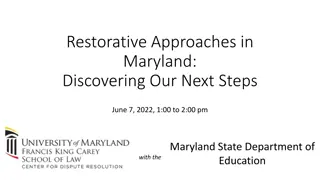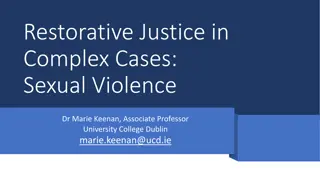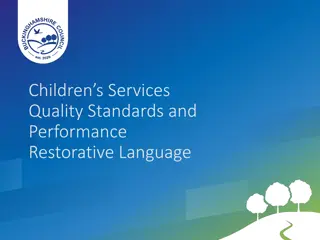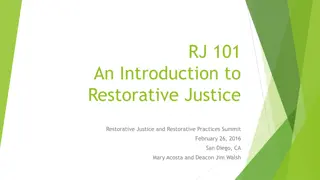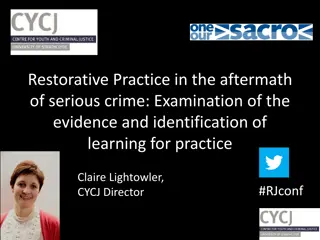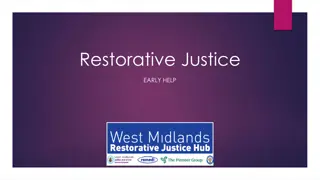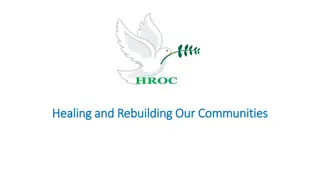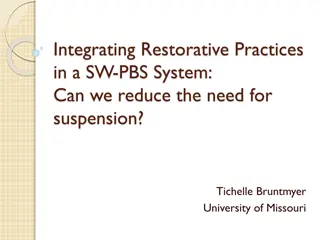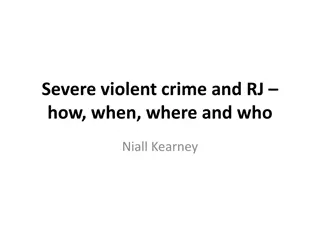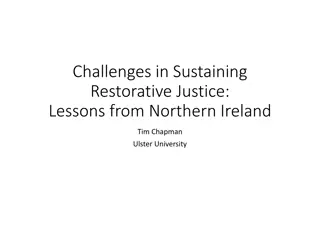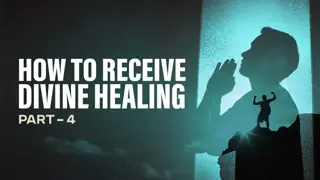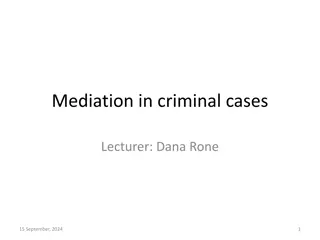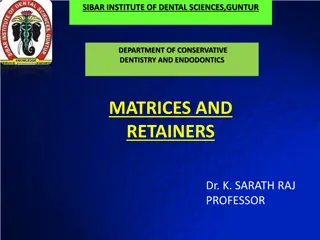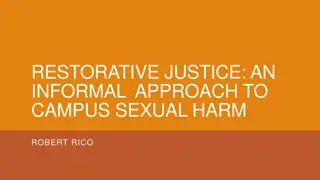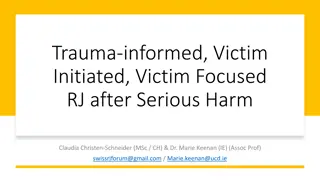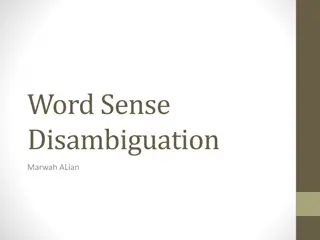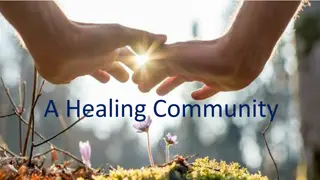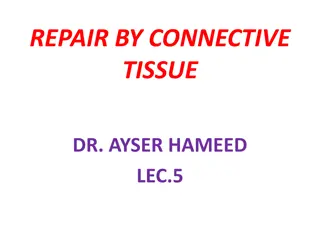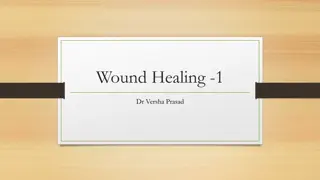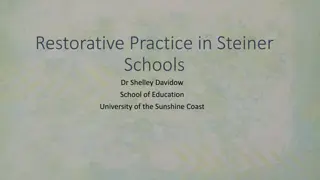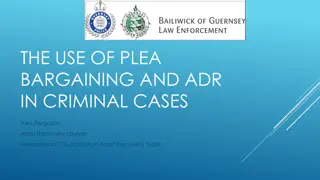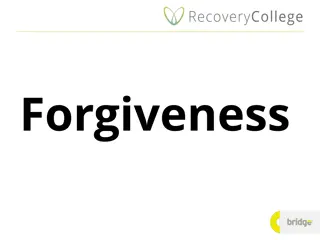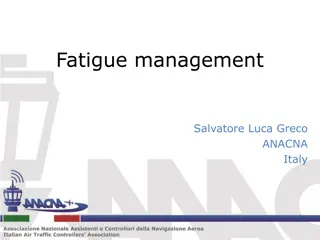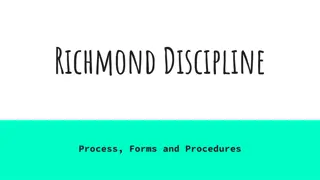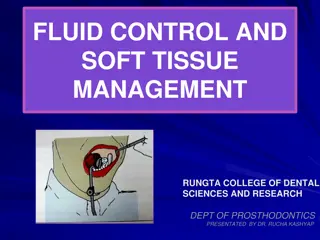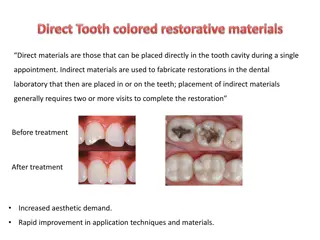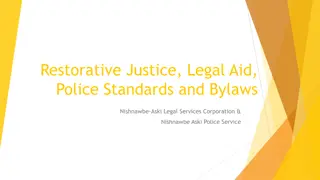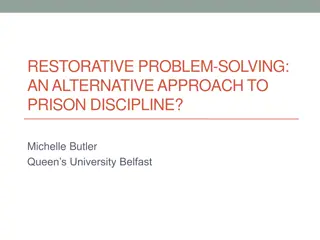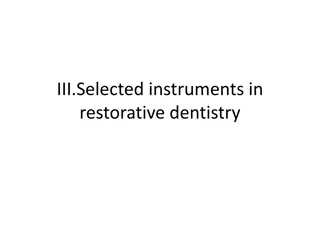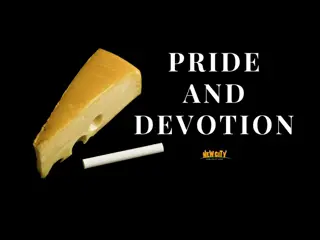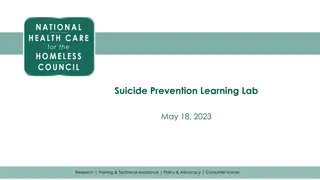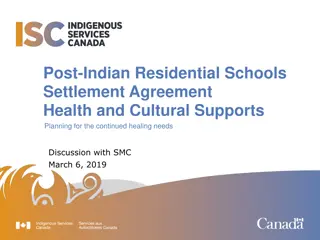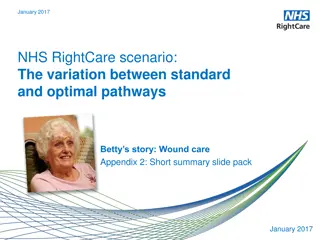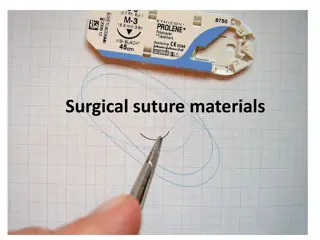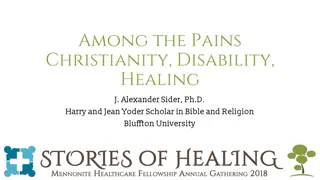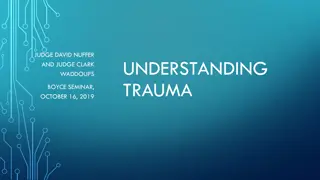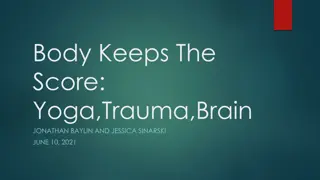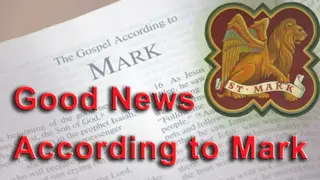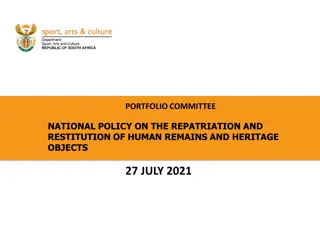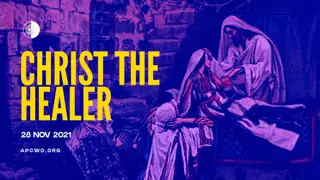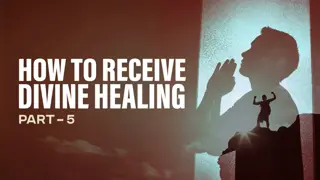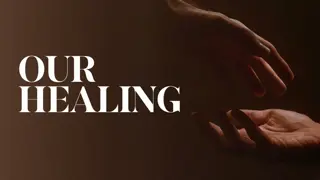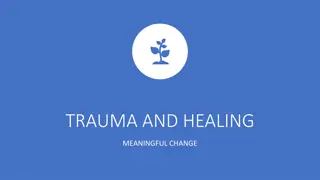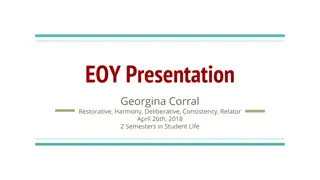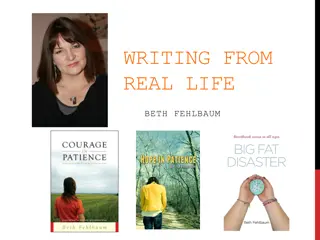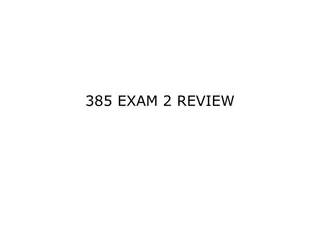Restorative Approaches for Education: A Journey Towards Understanding and Healing
Dive into the restorative paradigm with the guidance of Nancy Schertzing, as she explores the nuances of handling incidents with students with empathy and understanding. Reflect on your actions, learn from challenges, and seek collaborative support for a transformative journey towards restorative practices in education.
Download Presentation

Please find below an Image/Link to download the presentation.
The content on the website is provided AS IS for your information and personal use only. It may not be sold, licensed, or shared on other websites without obtaining consent from the author. Download presentation by click this link. If you encounter any issues during the download, it is possible that the publisher has removed the file from their server.
E N D
Presentation Transcript
Expanding the Restorative Paradigm Tuesday, May 3, 2022
From Rumi: Out beyond ideas of wrongdoing and rightdoing, there is a field. I'll meet you there.
How Restorative Am I? by Marg Thorsborne In the wake of an incident with a student: did I remain calm and respectful during the dialogue? did I truly listen? Hear them out without interrupting? Did they feel listened to, that it was a fair conversation? did we both end up understanding the motivation/intention behind the behavior? did the student understand why he/she is in trouble ? What rule has been broken? What the purpose of the rule is? did I explain what the school values are around the issue? did he/she come to understand the damage they have caused who has been harmed, and how? did I talk about how it is for me? did I take any responsibility for any part I may have had for what went wrong and did I acknowledge that? Did I apologize? if there is an apology to me, did I accept it with grace? was there a plan made? Have I agreed to help? has the relationship with this student been repaired? have I, at any stage, asked for someone I trust to observe my RP practice and give me honest feedback? do I try to handle most issues/incidents myself or do I rely on others to fix things for me? could I have handled this differently?
Discuss with Your Colleagues What did you find affirming? Where did it challenge you? How can the Collaborative support you on your restorative journey?
Do you have your book? Suggest this as a guide for integrating restorative approaches into your schools. I will work with you one-on-one using this as our guide (with other resources for needs we identify) beginning Mid May and throughout the year as needed.
Nancy Schertzing, MS (she/her/hers) Director, Restorative Approaches in Education Center for Dispute Resolution University of Maryland, Francis King Carey School of Law 410.706.3143 Reach out to me any time
Out beyond ideas of wrongdoing and rightdoing, there is a field. I'll meet you there. When the soul lies down in that grass, The world is too full to talk about. Ideas, language, even the phrase "each other" doesn't make sense. 13th Century Persian poet, Mevlana Jelaluddin Rumi.
